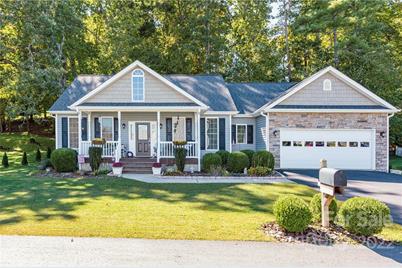
The procuring reason is the original motivation of a buyer, or seller, to engage in a real-estate transaction. The motivation could be as simple as a sign placed at an open house catching someone's interest or as serious and invasive as an advertisement published in the newspaper. No matter the reason for the sale, it is crucial that you complete the deal.
Defining Procuring Cause
One of the most common questions that brokers and buyers face is who will receive the commission for a sale of a property. This is a question that often comes up based on who was the broker responsible for the purchase of the property.
The National Association of Realtors, or NAR, defines procuring as "an unbroken sequence of circumstances that led to a successful deal." While this definition may sound obvious, it's crucial to keep in mind that it doesn't depend on just one factor. It's a complex issue that takes into consideration many different factors, including the roles and relationships of the parties involved in the transaction.

In Real Estate, what causes a cause?
In New York City determining who is paid in a given transaction depends on the procuring agent. The commission is only paid to the broker that is considered the procuring reason of the transaction.
There aren't any rules that say which firm should receive the commission for a particular sale. A hearing panel will weigh the evidence to determine which firm should receive the sale commission.
What Does It Do?
To determine whether or not a broker procured the transaction, the panel of hearings must review all facts and circumstances. They will consider things like the way the broker approached the customer, the reason they contacted the brokerage, and the outcome.
They will also consider the broker’s communication with a potential buyer. This includes how and when that person entered the deal, as well how their relationship developed.

The panel will take into consideration any previous case law or arbitral decisions. It is important that the panel make a correct decision, based on all facts and circumstances.
What Is Procuring Cause In Real estate
The National Association of Realtors' (NAR) list of factors that can be used to determine procuring cause is not exhaustive. It also focuses on the interplay of these factors to establish the truth of the matter.
What is the Procuring Cause of Real Estate?
There's no single answer for determining who gets the commissions on a purchase. Each case has its own unique facts, and each hearing in arbitration is evaluated based upon the information presented by the parties.
FAQ
How many times can my mortgage be refinanced?
This depends on whether you are refinancing with another lender or using a mortgage broker. You can refinance in either of these cases once every five-year.
What should you look out for when investing in real-estate?
The first step is to make sure you have enough money to buy real estate. If you don't have any money saved up for this purpose, you need to borrow from a bank or other financial institution. Also, you need to make sure you don't get into debt. If you default on the loan, you won't be able to repay it.
You should also know how much you are allowed to spend each month on investment properties. This amount should include mortgage payments, taxes, insurance and maintenance costs.
Also, make sure that you have a safe area to invest in property. You would be better off if you moved to another area while looking at properties.
How long will it take to sell my house
It depends on many factors including the condition and number of homes similar to yours that are currently for sale, the overall demand in your local area for homes, the housing market conditions, the local housing market, and others. It takes anywhere from 7 days to 90 days or longer, depending on these factors.
Is it cheaper to rent than to buy?
Renting is usually cheaper than buying a house. However, renting is usually cheaper than purchasing a home. The benefits of buying a house are not only obvious but also numerous. You will have greater control of your living arrangements.
What are the benefits associated with a fixed mortgage rate?
Fixed-rate mortgages guarantee that the interest rate will remain the same for the duration of the loan. This ensures that you don't have to worry if interest rates rise. Fixed-rate loans also come with lower payments because they're locked in for a set term.
Statistics
- Some experts hypothesize that rates will hit five percent by the second half of 2018, but there has been no official confirmation one way or the other. (fortunebuilders.com)
- This seems to be a more popular trend as the U.S. Census Bureau reports the homeownership rate was around 65% last year. (fortunebuilders.com)
- When it came to buying a home in 2015, experts predicted that mortgage rates would surpass five percent, yet interest rates remained below four percent. (fortunebuilders.com)
- The FHA sets its desirable debt-to-income ratio at 43%. (fortunebuilders.com)
- 10 years ago, homeownership was nearly 70%. (fortunebuilders.com)
External Links
How To
How to Manage a Rental Property
You can rent out your home to make extra cash, but you need to be careful. This article will help you decide whether you want to rent your house and provide tips for managing a rental property.
Here are some things you should know if you're thinking of renting your house.
-
What do I need to consider first? Before you decide if you want to rent out your house, take a look at your finances. If you are in debt, such as mortgage or credit card payments, it may be difficult to pay another person to live in your home while on vacation. Check your budget. If your monthly expenses are not covered by your rent, utilities and insurance, it is a sign that you need to reevaluate your finances. It might not be worth the effort.
-
How much is it to rent my home? There are many factors that influence the price you might charge for renting out your home. These factors include location, size, condition, features, season, and so forth. Remember that prices can vary depending on where your live so you shouldn't expect to receive the same rate anywhere. Rightmove has found that the average rent price for a London one-bedroom apartment is PS1,400 per mo. This means that you could earn about PS2,800 annually if you rent your entire home. Although this is quite a high income, you can probably make a lot more if you rent out a smaller portion of your home.
-
Is it worth it. Doing something new always comes with risks, but if it brings in extra income, why wouldn't you try it? You need to be clear about what you're signing before you do anything. Renting your home won't just mean spending more time away from your family; you'll also need to keep up with maintenance costs, pay for repairs and keep the place clean. Make sure you've thought through these issues carefully before signing up!
-
Are there any benefits? There are benefits to renting your home. Renting your home is a great way to get out of the grind and enjoy some peace from your day. No matter what your choice, renting is likely to be more rewarding than working every single day. You could make renting a part-time job if you plan ahead.
-
How do I find tenants? Once you've made the decision that you want your property to be rented out, you must advertise it correctly. Start by listing online using websites like Zoopla and Rightmove. You will need to interview potential tenants once they contact you. This will help you evaluate their suitability as well as ensure that they are financially secure enough to live in your home.
-
How do I ensure I am covered? If you fear that your home will be left empty, you need to ensure your home is protected against theft, damage, or fire. You'll need to insure your home, which you can do either through your landlord or directly with an insurer. Your landlord will often require you to add them to your policy as an additional insured. This means that they'll pay for damages to your property while you're not there. If you are not registered with UK insurers or if your landlord lives abroad, however, this does not apply. In these cases, you'll need an international insurer to register.
-
Sometimes it can feel as though you don’t have the money to spend all day looking at tenants, especially if there are no other jobs. You must put your best foot forward when advertising property. It is important to create a professional website and place ads online. It is also necessary to create a complete application form and give references. Some people prefer to do everything themselves while others hire agents who will take care of all the details. Either way, you'll need to be prepared to answer questions during interviews.
-
What do I do when I find my tenant. If you have a contract in place, you must inform your tenant of any changes. If you don't have a lease, you can negotiate length of stay, deposit, or other details. Remember that even though you will be paid at the end of your tenancy, you still have to pay utilities.
-
How do you collect the rent? When the time comes to collect the rent, you'll need to check whether your tenant has paid up. If they haven't, remind them. Any outstanding rents can be deducted from future rents, before you send them a final bill. If you are having difficulty finding your tenant, you can always contact the police. If there is a breach of contract they won't usually evict the tenant, but they can issue an arrest warrant.
-
How do I avoid problems? While renting out your home can be lucrative, it's important to keep yourself safe. Make sure you have carbon monoxide detectors installed and security cameras installed. Make sure your neighbors have given you permission to leave your property unlocked overnight and that you have enough insurance. You must also make sure that strangers are not allowed to enter your house, even when they claim they're moving in the next door.